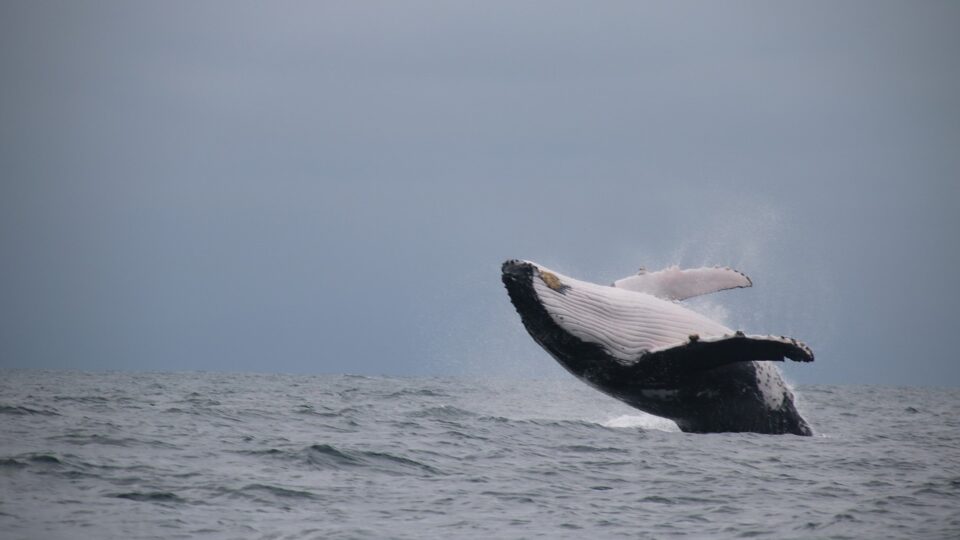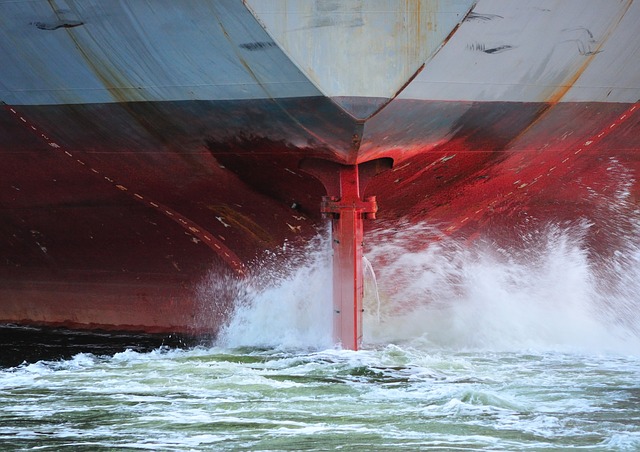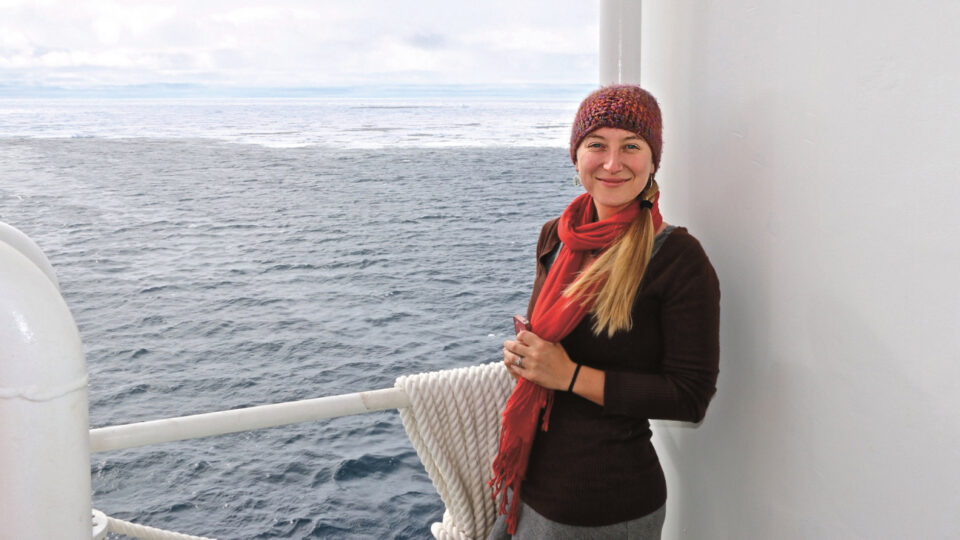Whales are one of our biggest allies in combating climate change. It´s more important than ever to protect them. New guidelines for reducing underwater sound pollution are coming in 2023 and recent studies shows that once we turn the volume down, whales quickly revert to a natural calling behavior.
The Oceanbird concept came from an ambition to reduce the impact on climate change caused by vessels. As a side effect, Oceanbird will also mean a reduction of sound pollution and drastically improved living conditions for whales. In return, whales contribute to less climate effect as well. It´s a circle – let´s make it a positive one.
How whales cool down the planet
Whales store enormous amount of carbon in their big bodies. When they die, they sink to the deep sea, taking all that carbon with them. The biggest creature of Earth also benefit the smallest: phytoplankton. Plankton captures an estimated 40% of all CO2 produced – four times the amount handled by the Amazon rainforest. Even though whales eat plankton, they contribute to a larger plankton population since their faeces creates perfect growing conditions for plankton. So, the more whales the more plankton and therefore the bigger carbon dioxide trap.

Acoustic fog
WWF reported in the end of 2021 that there are only 366 North Atlantic right whales left, representing a shocking 8% decline in a single year. In the past 10 years, the species has declined by 30%.
The biggest threats are climate change, fixed fishing gear and vessel strikes, but also sound pollution. Whales and other marine mammals have a hard time communicating with the increased sound levels due to the shipping industry. Whale songs are being drowned by the noise from vessels, which low-frequency sound spread over open sea as an ever-present and constantly rising acoustic fog that masks natural sounds.

Sound pollution may be part of ISO standards
In January 2022, the IMO (International Maritime Organization) Sub-Committee on Ship Design and Construction began to work on reviewing the Guidelines from 2014 for reducing underwater noise. During 2023, a correspondence group will present their results on, among else:
- Identifying comparable and common means of measuring, analyzing and reporting of underwater radiated noise emissions from ships (e.g. existing and developing ISO and other international standards).
- Identifying actions to further prevent and reduce underwater noise from ships, including options to integrate new and advancing technologies and/or vessel design solutions taking into account geographical characteristics.
- Considering ways to increase awareness, uptake and implementation of the Guidelines and identifying the most appropriate tools to do this.
Study during less traffic gives hope
But is it too late to repair poor communication? Dr. Michelle Fournet at Cornell University took the opportunity to study whale communication during the Covid-19 slowdown. In the study, which was supported by Wallenius Marine, she found that whales quickly reverted to communicating in a way that resembled the recording made prior to the shipping industrialization.
“Preliminary analysis indicates that whales contact call more in noisy years, but the call complexity increased during the slowdown. There were more diverse call types when it was quieter,” says Dr. Michelle Fournet.

Since most ship sounds comes from propellor cavitation, a vessel from the Oceanbird concept is able to sail almost completely quiet. If we are willing to turn the volume down, whales will have a better chance to find food, a partner and in short get better odds in surviving – and thereby also giving us a better chance in fighting climate change.



